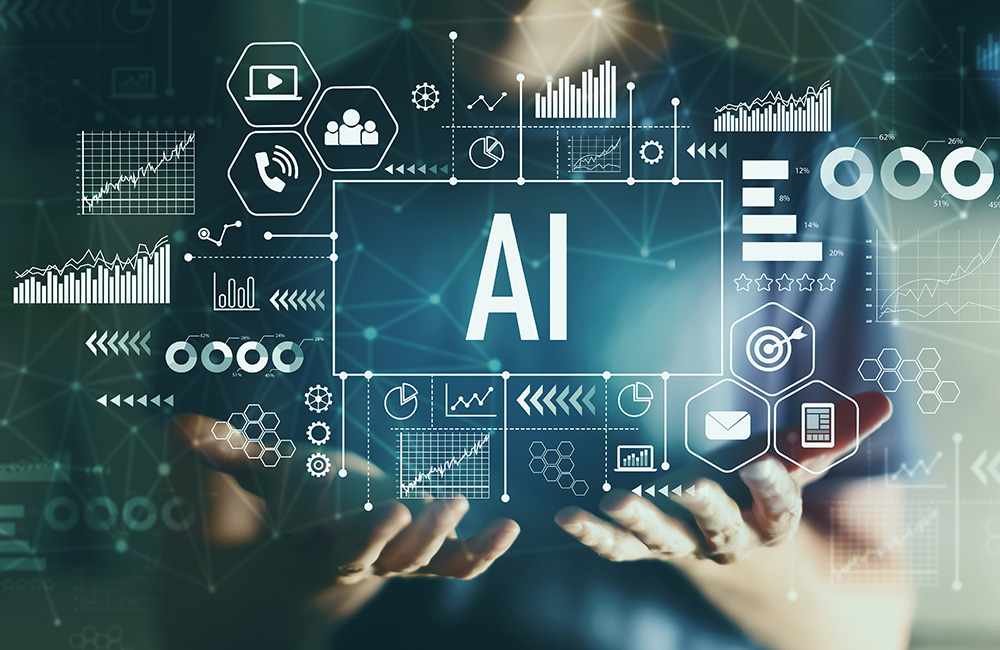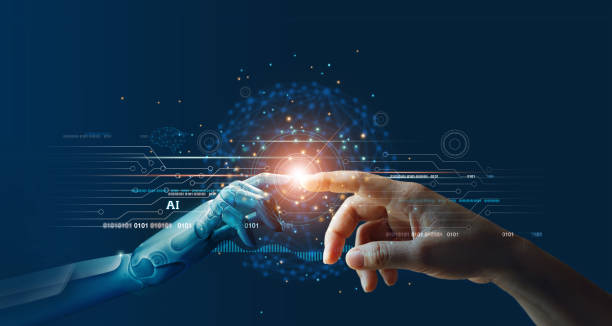
Introduction
Many of the revolutionary shifts taking place in our society today may be directly attributed to scientific and technical progress. The creation and use of Artificial Intelligence (AI) in many fields and businesses is one of the most significant advances in technology.
Artificial intelligence (AI) has emerged as a potent instrument that is transforming our lives due to its capacity to mimic human intelligence and complete complicated jobs. AI has permeated every aspect of our lives, from the medical and financial to the logistical and the recreational. This article will investigate the revolutionary potential of AI in the modern world by looking at its effects in many fields and answering often asked concerns about it.
The Role of Artificial Intelligence in Healthcare
By automating procedures, refining diagnostics, and boosting the quality of treatment for patients, AI has completely transformed the healthcare system. Medical experts may analyse massive volumes of patient data, find trends, and make precise forecasts with the help of AI-powered tools.
Artificial intelligence algorithms aid in illness diagnosis, therapy recommendation, and outcome prediction, allowing for more effective and individualized care for patients. In addition, AI has allowed for the creation of virtual assistants and chatbots, which have improved patient engagement and offered constant assistance.
Transforming Transportation with Artificial Intelligence
Autonomous cars, predictive maintenance, and effective logistics management are just a few examples of how AI has revolutionised the transportation industry. The use of AI algorithms and sensors in self-driving cars might significantly reduce the number of accidents that occur on the road.
Optimization of traffic flow, forecasting of congestion patterns, and improvement of public transportation systems are all areas where AI plays an important role. Smarter, more dependable, and more ecologically friendly transport networks are possible with the help of AI.
Artificial Intelligence in Finance: Enhancing Efficiency and Security
The banking sector has embraced AI in an effort to increase productivity, streamline operations, and tighten up security. Financial decision-making processes like risk assessment, fraud detection, and investment strategy development may all benefit from the speed and precision afforded by AI-powered algorithms analysing massive volumes of data.
With the use of AI, “robo-advisors” may tailor their recommendations to each client depending on their unique situation, needs, and risk tolerance. Chatbots and virtual assistants powered by artificial intelligence (AI) have also revolutionized customer service in the financial industry by making instantaneous help available and boosting the user experience.
The Impact of Artificial Intelligence on Education
By tailoring lessons to individual students, automating routine administrative duties, and enabling more flexible evaluations, AI has the ability to completely transform the educational system. By analyzing each student’s strengths and limitations, AI-enhanced learning systems may design individualized curriculums.
Students benefit greatly from the instantaneous feedback and direction provided by virtual instructors and chatbots. Teachers are able to devote more time to education and student support because AI tools help automate administrative activities like grading and scheduling.
Artificial Intelligence and Entertainment: A New Frontier
There has been a dramatic shift in the entertainment business as a result of the introduction of AI. In order to provide customised suggestions, AI algorithms on streaming services evaluate user tastes, behaviour, and social media trends.
AI-driven recommendation systems improve the user experience by making personalized recommendations for media like movies, television series, and songs. Artificial intelligence is also used in the production process, resulting in more lifelike visual effects, believable computer-generated characters, and more exciting video game scenarios.
Addressing Concerns: Ethical and Privacy Implications
Ethical and privacy issues have emerged as a result of society’s growing dependence on AI. There has to be openness, justice, and accountability included in the design and implementation of AI systems. Regulations should be in place to address the dangers and biases connected with AI algorithms, and user privacy should be protected at all costs.
In order to take advantage of artificial intelligence’s transformational potential while minimizing its hazards, it is essential to find a middle ground between innovative research and the responsible use of AI.

The future of AI in the US market is incredibly promising, with continued growth and widespread adoption anticipated across various industries. Here are some key insights into the potential developments.
How AI can change US market?
The future of artificial intelligence in the market of the United States has a great deal of potential for revolutionizing several industries, increasing efficiency, and opening up new possibilities. This potential will grow to an even greater extent as AI technologies advance and integration becomes more widespread. However, in order to ensure the deployment of artificial intelligence in a manner that is both responsible and inviting, a great amount of effort must be dedicated to ethical concerns and regulatory frameworks.
Conclusion
There is no denying the revolutionary force that artificial intelligence possesses in the world as it exists today.
Artificial intelligence (AI) has revolutionized a variety of industries, including healthcare, transportation, banking, and education, by delivering increased efficiencies, improved decision-making, and more personalized experiences.
However, it is essential to address ethical issues, guarantee security of personal information, and strike a balance between responsible AI deployment and innovative AI development. We can unlock the actual revolutionary power of artificial intelligence and design a future that is beneficial to all of us if we make human values our top priority while maximizing the potential of artificial intelligence (AI).
Disclaimer
The information provided in this article is for educational purposes only and does not constitute professional advice.
FAQ
How does artificial intelligence impact job markets?
It is only normal to feel apprehensive about the effects that the further development of artificial intelligence will have on labour markets. Even while AI may automate certain work, it would also generate new possibilities and career roles.
According to the World Economic Forum, it is anticipated that artificial intelligence would generate more jobs than it eliminates, particularly in fields that demand human talents such as critical thinking, creative problem-solving, and innovative problem-finding.
Can artificial intelligence replace human creativity?
There is some evidence that artificial intelligence may supplement human creativity, but it is highly doubtful that it can fully replace it.
AI systems are capable of generating ideas, designs, and even composing music; yet, the imagination, intuition, and emotion that come from the human mind are what truly drive creativity.
AI has the potential to serve as a useful tool for creative workers, giving not just inspiration but also data analysis and the automation of jobs that are repetitive.
Are there ethical concerns with the use of artificial intelligence?
Issues such as bias in algorithms, invasions of privacy, and the possible exploitation of AI-powered devices are all examples of areas that give rise to ethical concerns with artificial intelligence.
It is of the utmost importance to address these issues by means of stringent regulation, transparency, and accountability in the development and implementation of AI technology.
How can artificial intelligence improve sustainability efforts?
Optimizing energy use, enhancing waste management systems, and allowing transportation networks that are more efficient are all ways in which artificial intelligence may make a contribution to attempts to improve sustainability.
The use of AI algorithms allows for the identification of areas that might use improvement, the optimization of resource allocation, and the reduction of carbon footprints.
Is artificial intelligence capable of making moral decisions?
Artificial intelligence is programmed to carry out tasks in accordance with algorithms and regulations that have been predetermined.
Although AI is capable of processing huge quantities of data and basing judgements on that knowledge, it does not possess the moral reasoning or ethical judgement of a human being. For artificial intelligence (AI) systems to make ethical decisions, there must be human monitoring, as well as the inclusion of ethical frameworks.
How can artificial intelligence benefit developing countries?
There is a possibility that artificial intelligence will be of use to poor nations in the form of improved access to healthcare, educational opportunities, and financial services.
AI-enabled financial services have the potential to increase financial inclusion, AI-based educational tools have the potential to deliver high-quality learning materials, and AI-powered telemedicine systems have the potential to provide medical knowledge to remote places.

1 thought on “Artificial Intelligence: Will technology be Ruled by AI in next 5 years?”